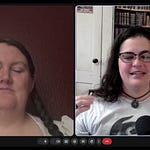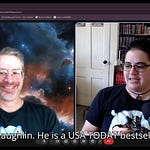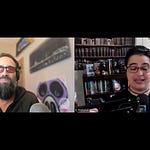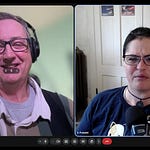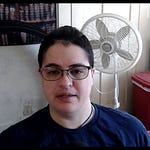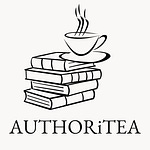Editing is a rich, nuanced, multi-faceted thing. I’ve already covered what the different types of editing are elsewhere, but I wanted to dig a little deeper into the profession as a whole rather than just listing out the tasks and explaining it. This one runs the risk of being esoteric, but I am hopeful that it will help express some things that are near and dear to my heart.
Honestly, editing is more than just a job to me. It’s a personal passion, a vocation, and something near to a calling. I view what I do with genuine reverence and see it almost like being invited into a sacred space. Not in the religious sense, but in the sense of being allowed into the most intimate part of an author’s mind and heart. But I’m getting ahead of myself.

If it isn’t just fixing things, what is it?
Honestly, the way I view it is that we are making the author’s work the best version of itself. More than that, we are often cheerleaders, mentors, and even friends of our clients. People often think editors are arm’s length about our work, and some of us are, but we are all rooting for our clients and really want them to succeed. Editing spaces are rife with editors celebrating their authors’ triumphs because we really are in your corner.
More than just fixing things, I also view myself as a writing instructor in a way. I specialize in new authors and mentoring them as they grow. That’s one of the areas I excel in, and it’s one of the most rewarding things I can imagine. Watching the lights come on when they learn things and discover new ways of expressing themselves is one of my favorite experiences. Whether I’m coaching or just chatting through email, I cannot say strongly enough how happy I am when my clients pick up on things.
At the risk of sounding grandiose, I also view it as being caretakers of our authors’ souls to some extent as well. Every book is a window into the heart and mind of the writer. They are portals into the most intimate places of our thoughts. This is just as true of genre fiction as it is of literary, by the way. Just as true of romance as of memoir. Our closeness to that creative spark and the author’s voice — which is a reflection of their spirit, experience, and self — is why I say what we do enters into the realm of being sacred.
Author voice is sacred?
Yes. Sacred means to be set apart for the purposes of being a holy space or something dedicated to the veneration of a thing. While this is usually used in a religious sense, I mean it here in the sense of a place where I must move with reverence.
Now, not every single comma is holy. If I’m fixing punctuation errors or correcting straight and curly quotes, it’s not something untouchable. That said, I am still poking around in an author’s soul. Punctuation is part of that. It does change meaning depending on how punctuation is handled, and it can change the way the author’s voice is heard in the reader’s mind. Are some decisions easy because they’re categorically wrong? Yes. Yes they are. However, many are far more nuanced and require more consideration.
When I was first learning to edit, I was very prescriptive. I looked at things as being either correct via the style guide I had (it wasn’t CMOS — it was an in-house guide for an indie publisher I worked for) or it wasn’t. It was binary, and I would force decisions on things because that’s what I was expected to do. While I learned a lot in that time, the longer I have worked, the more I understand that there is nuance to that. While, yes, some things are just plain wrong or right (like “there” or “their”) most decisions are not so clear cut.
So what is correct, anyway?
As I have learned over the years, “correct” is a complicated thing. Do we mean correct against a specific style guide (like the CMOS?) or do we mean correct in the sense that the reader picks up on what the author intends? Is “correct” some kind of external influence or does it mean internally consistent? There are a lot of things that are “correct” for one thing and not for others.
Determining what is right for a manuscript or not requires experience. Noticing that an author tends to use punctuation a certain way may lead me to ensure that stays consistent within itself. Does the author describe things in specific language? Is the author using ESL syntax from another language that isn’t wrong but is interesting? Do we want to keep that or remove it? There are a lot of questions when I’m working on a story.
That’s the thing. Correct is not one specific thing the majority of the time. As a rule, in my philosophy, correct is often determined by the specific project I’m working on. What is right for that author? For their voice? Sometimes it’s strict CMOS guidelines for certain things. For others, it’s far looser. It’s all about knowing who the author’s audience is and what the author’s goals are. As with so many things in the world, there is no “one true way.”
If there’s no “correct” then what’s the point?
Editing isn’t just about making your book “correct.” That’s the piece many people mistake. Correct is kind of a misnomer, but what a good editor does is take your book and make it the best possible version of your story it can be without stomping on you. My job is to take what an author brings me and polish and elevate it to the best we possibly can create together without deleting the things that are yours.
I recently worked with an ESL client whose book was written in a way that was very clearly not English syntax. I understood it clearly and had no difficulty following the story. It also didn’t damage my enjoyment of the story either. As a result, I left the syntax as it was and focused on making sure everything was clear, readable, and enjoyable for audiences. Their voice was their voice, and trying to sanitize that wouldn’t have done them any favors.
I had another client with whom I worked recently who struggles some with description and evoking emotions. We did some exercises on how to describe a scene in a way that allows a reader to really experience it with the character, but I didn’t rewrite their book for them.
The reason I share these anecdotes is because the job is constantly changing, fluid, and is a dance between ensuring the reader can engage with and enjoy the story and remaining true to the author’s voice in the process. While an author’s voice isn’t a particularly fragile thing (it takes a lot to really damage it), it’s my job to be tender with it and show it reverence. As I said earlier, it’s the heart of their storytelling and is not to be screwed with.
My clients, after working with me, typically have a few specific things to say. The first is that I helped them understand what they needed better and gave them perspective on their work. The second is that I gave them a lot to think about (particularly in developmental edits where I am typically jabbing world building with a stick). Finally, I often hear that they walk away from working with me with a deeper understanding of their craft as a whole. That is the point.
Not every editor has the same philosophy I do (and no shade on my colleagues who hold different views!), but to me, my job is about 60% writing instructor, 20% spelling and grammar check, and 20% cheerleader. I leave comments in the margins designed to explain why I do things and provide authors as much insight into my reasoning as possible because if they know why, they grow. I’ve seen authors go from really rough to absolutely phenomenal over the course of a few years and a number of edits, and those are my big cheerleading moments. Those are the things I am most proud of.
Ultimately, I view my role as the “old man of the mountain” in a way. I’m here to provide insight, wisdom, and guidance to people who want it. I’ve been in the industry for a long time now, and I pride myself on being able to share what I’ve learned through the school of hard knocks. I don’t want people to have to flounder around in the deep end of the pool like I did. I’d rather give them a life raft while they learn to swim.
Did this resonate with you? Do you have questions about editing and writing? Let me know in the comments! Either that or visit my editing website and drop me an email at http://www.selfpub.me




